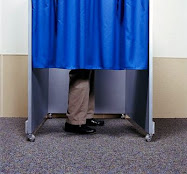
1. Infidelity is not as common as you might think. A 2006 online survey of 46,000 people revealed that one in five married men and one in ten married women had committed infidelity during their marriage (BBC's UK Lovemap).
2. If there is no way that your partner will find out about a one-off misdemeanour on a business trip, and you want your relationship to survive, honesty is not necessarily the best policy.
3. Crippled with guilt or need advice? Respect your partner and talk to a neutral third party rather than confiding in a friend. Relate offers telephone counselling for £45 an hour on 0300 1001234. Or call the Samaritans on 08457 909090.
4. If the affair is ongoing and there is a chance that someone else will tell your partner, come clean. A one-night stand might just be excusable; lying never is.
5. Nor is compromising your partner's sexual health. If you were dumb enough to have unprotected sex, get tested for STIs. Some STIs can't be picked up for two weeks or more, and HIV has a three-month dormancy period. So even if your initial results are clear, you may need to tell your partner the truth so that he or she can get tested too.
6. When you tell your partner your motive should be a genuine desire to improve or, if necessary, gently terminate your relationship. Don't confess to ease your own guilt, vent anger or get even.
7. Infidelity is often a symptom, not a cause, of trouble in a relationship, and confessing may force you to address the underlying issues. For example, if you were drunk or high when your infidelity happened, drugs and alcohol may be the real problem.
8. Frank Pittman, a psychiatrist and relationship expert, says there are four types of infidelity: accidental infidelity (an unintended act of, usually drunken, carelessness); the romantic affair (you meet somebody wonderful while you are going through a big crisis in your life); the marital arrangement (comfort while you avoid dealing with a marriage that won't die and won't recover); and the philanderer (men who continually need their masculinity affirmed, women who are the daughters or ex-wives of philanderers).
9. Extra-marital affairs remain the biggest cause for divorce, according to the UK management consultants Grant Thornton.
10. Only 3 per cent of 4,100 high-powered, but unfaithful, men divorced their wives and married their lovers (Dr Jan Halper, the author of Quiet Desperation: The Truth About Successful Men). And the divorce rate among those who marry their lovers is 75 per cent (Frank Pittman).



















